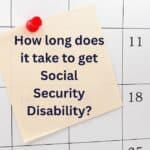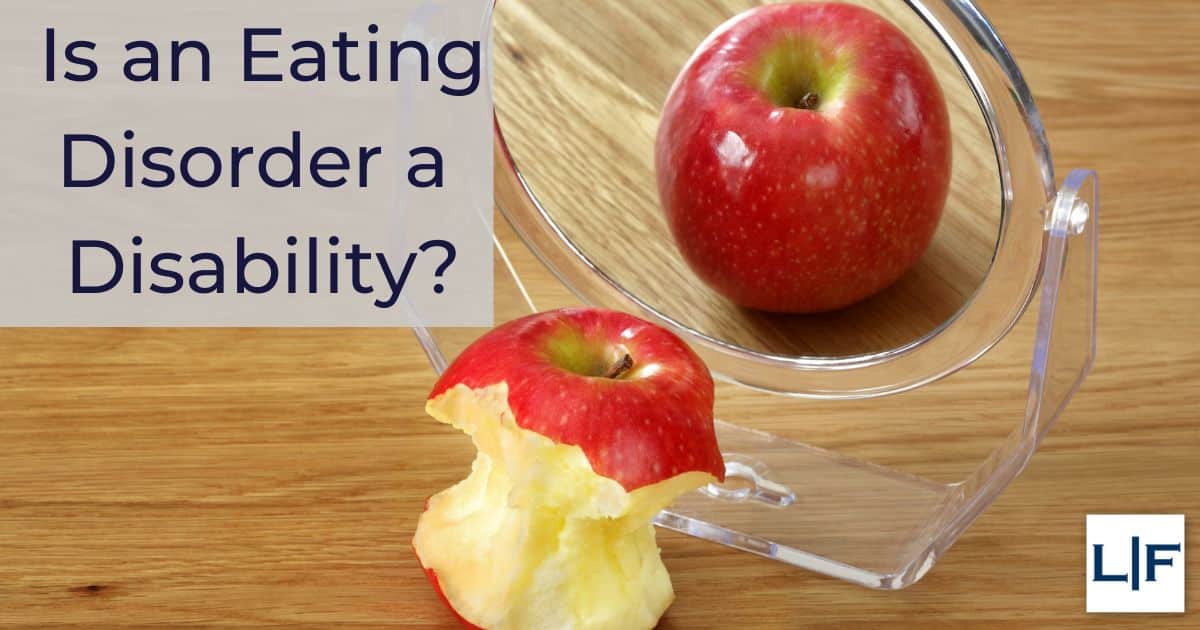Can I get disability for an Eating Disorder?
Eating disorders can cause a host of mental, emotional, and physical symptoms that can lead to serious long-term complications. These types of conditions have the highest mortality rate of any other type of mental disorder, according to the National Association of Anorexia Nervosa and Associated Disorders (ANAD). In fact, every 62 seconds, at least one person dies as a direct result of an eating disorder.
When an eating disorder progresses to the point where it affects your ability to work, you may be able to qualify for Social Security Benefits. The Social Security Administration (SSA) evaluates each application on a case-by-case basis to determine whether the claimant’s eating disorder legitimately impairs his or her ability to work. Getting social security benefits for an eating disorder can be tough, but our team at Lunn & Forro, PLLC can help.
Call our office in Raleigh today and request a free consultation with a disability attorney to see how we may be of service to you: 888-966-6566. If you prefer you can use our free case evaluation form.
What are the medical criteria for benefits based on eating disorders?
To qualify for disability benefits, you will need to prove to the SSA that you have a condition that is severe enough to meet the criteria in the Listings or that prevents you from working. Also, the condition must have lasted for year or more or be expected to result in death in order to meet the requirements for disability.
To show that an eating disorder is severe enough to meet the Listing Criteria you have to provide “Medical documentation of a persistent alteration in eating or eating-related behavior that results in a change in consumption or absorption of food and that significantly impairs physical or psychological health.” and have multiple moderate limitations.
Are there other criteria for obtaining benefits for eating disorders?
In addition to meeting the medical criteria, you will need to meet the financial/work requirements to obtain disability benefits. The requirements depend on the type of benefit that you are applying for:
- SSDI: If you are applying for Social Security Disability Insurance (SSDI) benefits, you must have worked long and recent enough to have sufficient work credits on your record. The amount of credits you need depends upon your age. Additionally, your monthly earnings must not exceed $1,130 to qualify.
- SSI: If you do not have a sufficient work history to meet the requirements for SSDI, you might instead qualify for Supplemental Security Income (SSI), a disability benefit for disabled persons with limited income and resources. To meet the financial requirements, your income must be below a certain threshold and your assets must have a value of less than $2,000.
You are welcome to call our office for help determining if you meet the requirements. To get started, request a free case evaluation with one of our disability lawyers in Raleigh.
How do I prove that I meet the criteria for disability benefits based on my eating disorder?
You will need substantial evidence from acceptable medical and mental health providers to prove your disability to the SSA. The medical records you will need to submit depend upon the nature of the issues you are experiencing. Some of the items that may be useful include:
- Body Mass Index (BMI) measurements
- Your medical file from your general practitioner, as well as any specialists you have seen for your eating disorder and its related manifestations
- Hospital records (e.g., for gastrointestinal bleeding)
- Brain scans (e.g., for seizures)
- Heart scans and imaging tests (when your disorder has caused heart complications)
- Blood work (e.g., for anemia)
- Input from your mental health physician that demonstrates how your condition is affecting your ability to cope with people, work, and life
If you have a severe eating disorder and it is affecting your ability to work, you might be legitimately disabled; however, proving that to the SSA is not always easy. The amount of evidence the SSA requires to conclude that you are disabled is burdensome. To ensure you submit adequate evidence and obtain the benefits you are entitled to, it is highly recommended to have an attorney assist you with the application process.
What if the SSA has denied my application for eating disorder disability benefits?
If you recently received notice that the SSA denied your application for benefits for an eating disorder disability, our lawyers at Lunn & Forro, PLLC can help you appeal your claim. The majority of claims face denial initially, but don’t let that discourage you. We have been helping people with disabilities in Raleigh and throughout North Carolina for years; we know what is necessary to establish a disability and meet the medical criteria.
You should be aware that there is a strict time limit on when you can appeal a denial. Do not procrastinate. Let us get to work ASAP to help you get the benefits you need. Call us today for a no-cost, no-obligation consultation: 888-966-6566.
Related Posts

What is a consultative exam?
A consultative exam is ordered when Social Security believes that they need more medical information to make a decision in your case. This exam is

How Do I File a Disability Appeal?
You gave Social Security Disability all the information they asked for and agreed to a medical exam, but your disability claim was still denied. It

How Much Does a Disability Lawyer Cost?
Lawyer fees in Social Security cases are contingent. So the short answer is that it costs you nothing up front to hire a lawyer at

How Long Does It Take to Get Social Security Disability?
“How long does it take to get Social Security Disability benefits?” is probably the most common question that our clients ask. Every case is different,
Do I Need a Disability Lawyer to get SSDI?
Many people wonder if they really need the help of a disability lawyer to obtain their Social Security benefits. You May Not Need a Disability
Notice of Hearing – Social Security Disability
The wait for a disability hearing varies from a few months to over a year, and once the Request for Hearing is filed, you will
I fired my disability lawyer. Now I need a fee waiver. What do I do?
Whenever a disability lawyer withdraws from a case, either on their own or at their client’s request, they must decide whether or not to waive
The Role of a Social Security Disability Attorney
When people are faced with applying for Social Security disability benefits, many wonder if it is worthwhile to hire an attorney. After a life-altering disability



